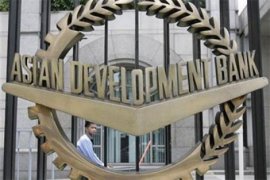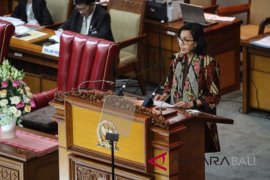Jakarta (Antara Bali) - Indonesia's economy is projected to grow 5.2 percent in 2016 and 5.5 percent in 2017, according to a latest report received from the Asian Development Bank (ADB).
A press statement from ADB received by Antara here on Monday (July 18) said the risk that continues to pose a challenge for the Indonesian economy is a shortfall in income that may be higher than the initial projection that would impede the government's infrastructure development plans.
In addition, another domestic challenge is the weakening credit growth that potentially slows down the recovery of domestic private investments.
Meanwhile, the main external risks are global growth that is weaker than the initial forecasts and the high global financial market volatility.
ADB's projection is based on the Indonesian economy that grew 4.9 percent in the first quarter of 2016.
The inflation rate is expected to be low due to stability in the prices of fuel, liquefied gas, and electricity. The relatively stable exchange rate of the rupiah also supports the performance of domestic consumption.
Government spending grew 2.9 percent in line with the trend of lower spending in the first quarter of 2016.
Household expenditure is projected to slightly increase due to moderate inflation, the relatively stable exchange rate of the rupiah, and the low energy prices.
Overall, the ADB report stated that the economic growth in developing countries in Asia and the Pacific is still solid due to good performances in South Asia, East Asia, and Southeast Asia.
The growth in the regions helped to counter the economic decline in the United States and to recover from the short-term market volatility as a result of Brexit.
Nonetheless, the ADB has forecast that the economies of Asian developing countries will grow only 5.6 percent in 2016, down from its previous prediction of 5.7 percent. The projection remains unchanged for 2017.
Shang-Jin Wei, ADB's chief economist, noted that Brexit had an influence on the currencies and capital markets of developing countries in Asia, but it is expected to have a limited impact on the real economies of these markets in the short term.
"However, given the weak outlook for economic growth in major industrial countries, the policymakers should remain alert and responsive to potential external shocks to ensure strong growth in the region," Wei added. (WDY)






